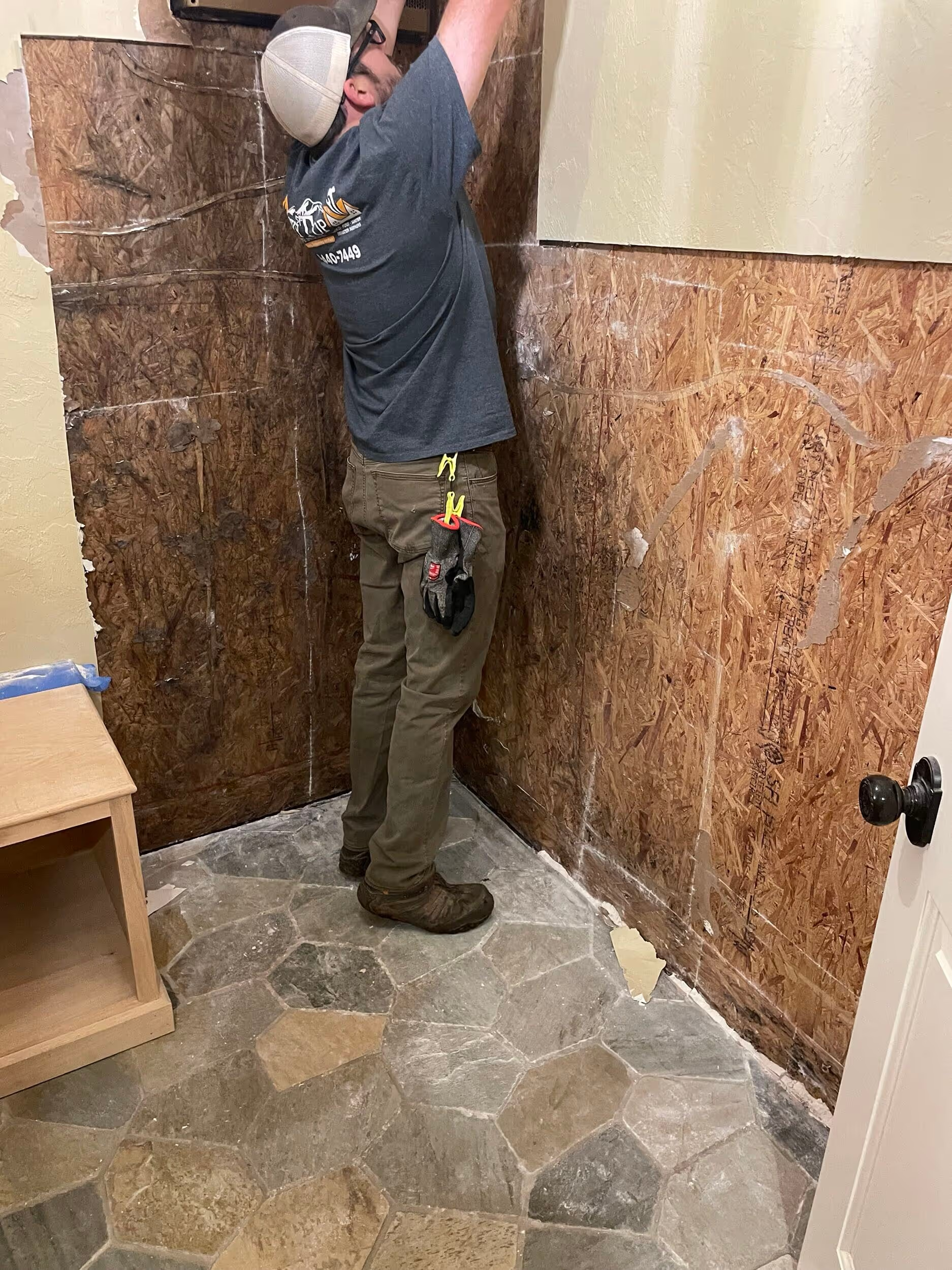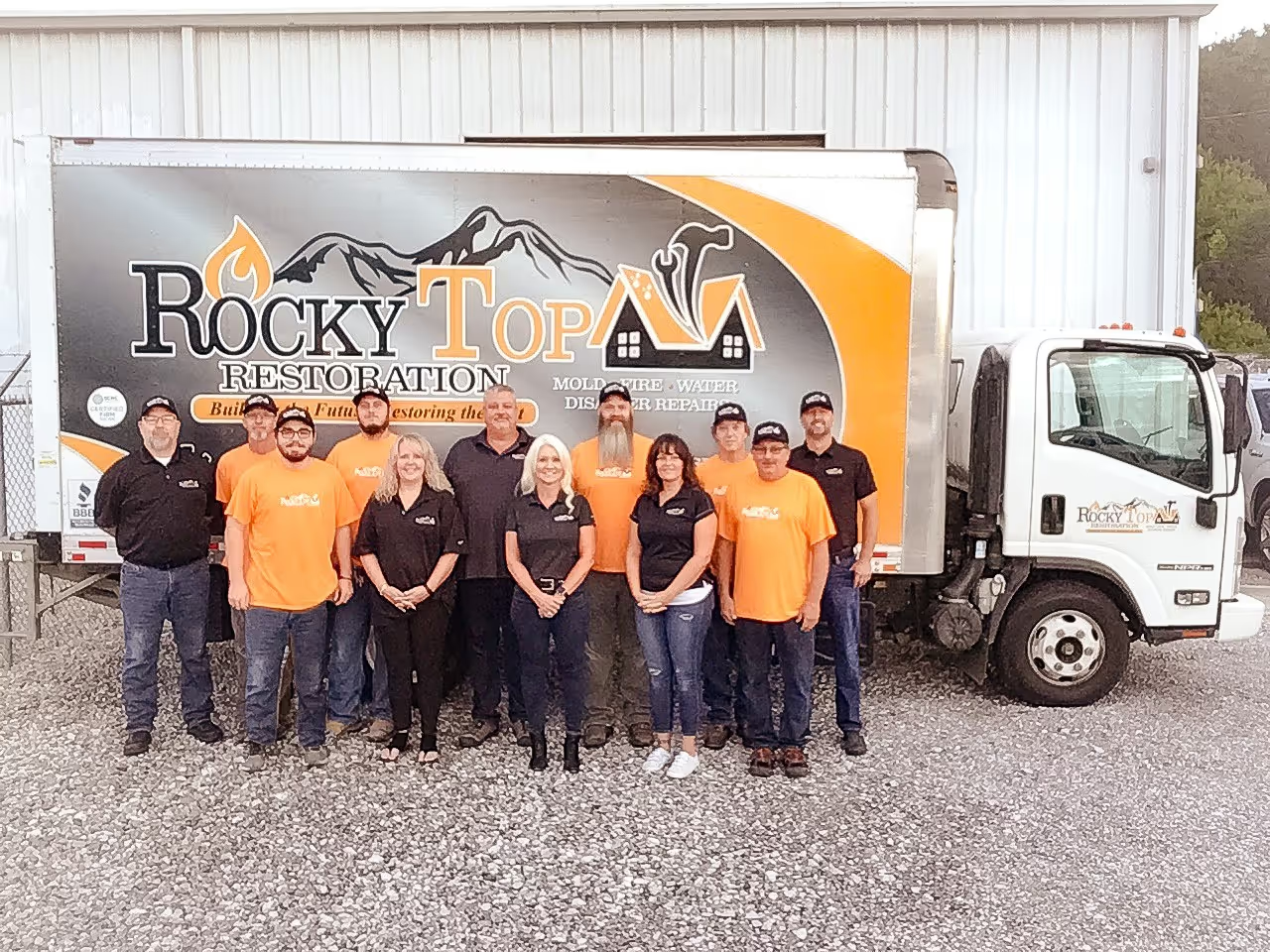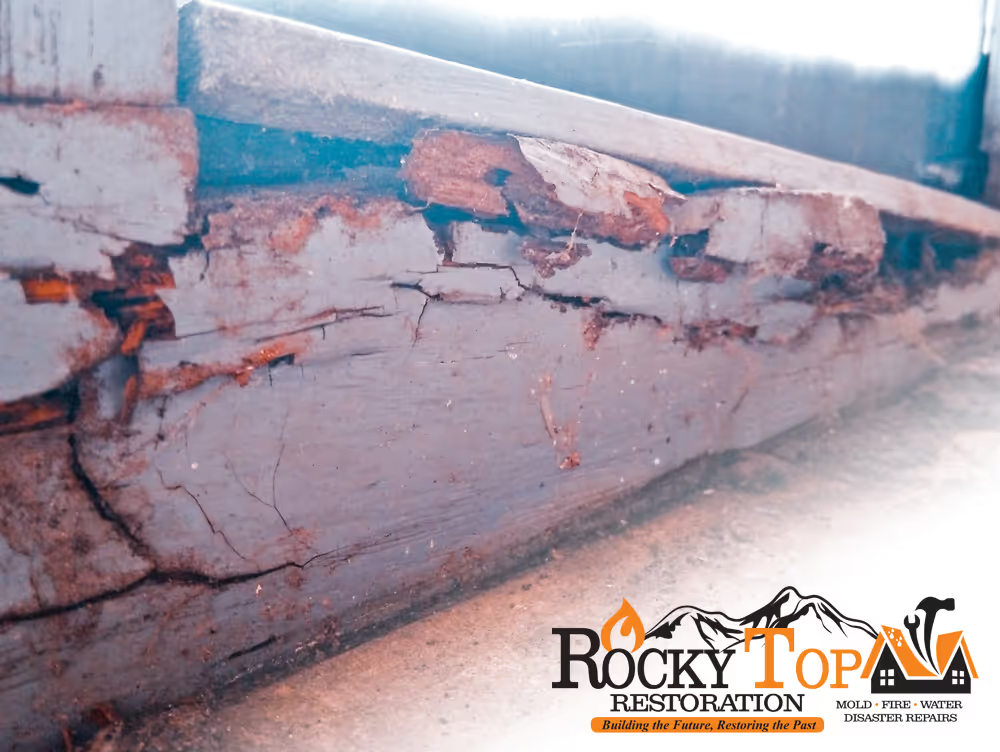Understand the Effects of Cold Weather on Your Home
Explore the structural risks of winter, and common issues, and offer tips for protecting your home during the winter.

Winter is a beautiful season in Knoxville, TN, with crisp mornings and sometimes a snowfall. However, while we may enjoy the cold weather, our homes often bear the brunt of the seasonal changes. Freezing temperatures, ice, and snow take a toll on your home’s structure, leading to costly repairs if not addressed in a timely fashion. At Rocky Top Restoration, we help you understand the potential effects of cold weather on your home and how to prevent significant damage.
In this blog, we explore the structural risks of winter, provide expert insights into common issues, and offer tips for protecting your home during the colder months.
How Cold Weather Impacts Your Home’s Foundation
One of your home’s most vulnerable parts during the winter is the foundation. Knoxville's cold temperatures cause the ground to freeze, leading to a phenomenon known as frost heaving. Frost heaving occurs when the soil beneath your foundation expands because frozen water pushes against the foundation and causes cracks.
Cracks in the foundation may seem minor at first, but they lead to severe structural issues over time. According to the Insurance Information Institute, approximately one in 60 homeowners file a claim for water damage or freezing each year, often from structural changes because of climate. In 2020, these claims compromised nearly 20 percent of all homeowner insurance claims, with an average cost exceeding $10,000 per claim.
To mitigate this, homeowners should:
- Ensure proper drainage around their homes to prevent water from seeping into the soil.
- Inspect the foundation for cracks before winter and seal any vulnerabilities.
- Consider adding insulation to the foundation walls for extra protection.
The Effects of Cold Weather on Roofing Systems
Your roof is another critical area affected by cold weather. Knoxville experiences periods of snowfall, and the added weight of snow accumulation may strain your roof, especially if it’s old. Ice dams are a particular concern. They form when snow melts and refreezes along the roof’s edges, preventing proper drainage. To prevent these issues:
- Clean your gutters before winter to ensure proper water drainage.
- Invest in attic insulation to maintain a consistent roof temperature.
- Regularly inspect your roof for signs of wear and tear during the colder months.
Plumbing Problems in Freezing Temperatures
One of the most immediate effects of cold weather is on your home’s plumbing system. Knoxville's cold, winter temperatures cause pipes to freeze and burst, leading to costly repairs and water damage. Here are a few tips on how to protect your pipes this winter:
- Insulate exposed pipes in unheated areas, such as basements or crawl spaces.
- Let faucets drip slightly during freezing weather to keep water flowing.
- Keep the thermostat set to at least 55-60°F, even when you’re away from home.
Siding and Exterior Damage from Cold Weather
Cold weather also affects your home’s siding and exterior surfaces. Freeze-thaw cycles cause materials like wood, brick, and vinyl to expand and contract, potentially leading to cracks and warping. Furthermore, snow and ice trap moisture against your home’s exterior, accelerating decay and rot. Here are a few tips on how to maintain your home’s exterior through the cold:
- Inspect your siding and repair any damaged areas before winter.
- Clear snow and ice buildup from walls and gutters.
- Apply weather-resistant sealants to protect surfaces from moisture.
Insulation and Energy Efficiency: A Hidden Impact
While not a structural issue, inadequate insulation during cold weather compromises your home’s energy efficiency, leading to higher heating bills and uncomfortable living conditions. Poor insulation also allows cold air to seep into walls, causing pipes to freeze and increasing the risk of mold growth. Here are some ways to improve your insulation at home:
- Seal gaps around windows and doors with weatherstripping.
- Add insulation to your attic, basement, and crawl spaces.
- Use thermal curtains to reduce heat loss through windows.
When to Call in the Experts
If your home has already suffered damage from cold weather, addressing it promptly is essential to prevent further complications. Cracks in the foundation, roof leaks, or burst pipes require professional attention. At Rocky Top Restoration, we specialize in restoring homes impacted by harsh weather conditions, ensuring they’re safe and secure for your family.
Understanding how cold weather affects your home’s structure is the first step in protecting it from damage. By inspecting your home regularly, addressing small issues before they escalate, and investing in preventive measures, you safeguard your property through even the harshest winters.
For more information or assistance with winter-related home restoration in Knoxville, TN, contact Rocky Top Restoration today. Our experienced team is ready to help you keep your home in top shape all year long.
Need Immediate Help?
We Are Available 24/7!





